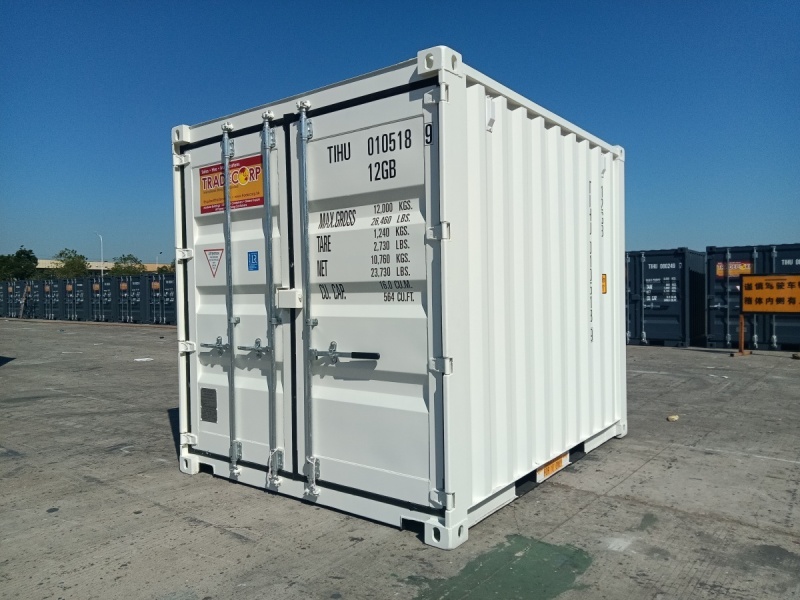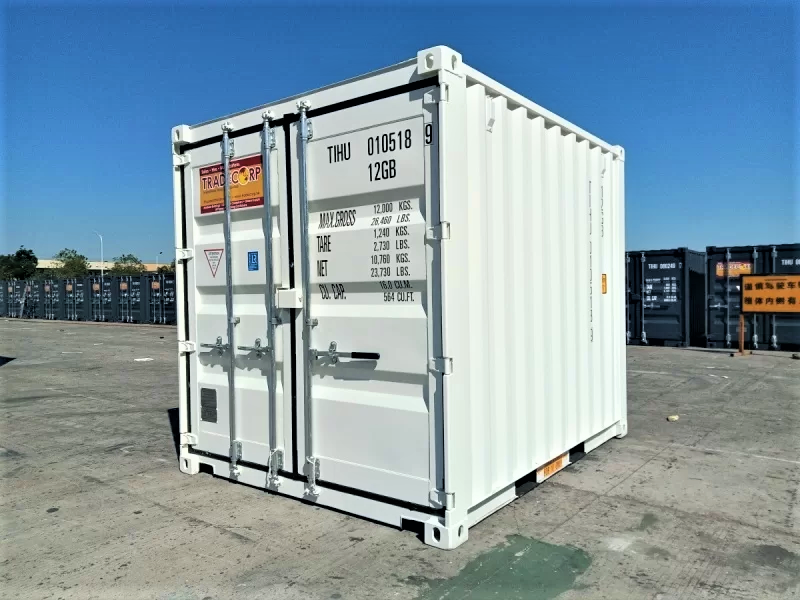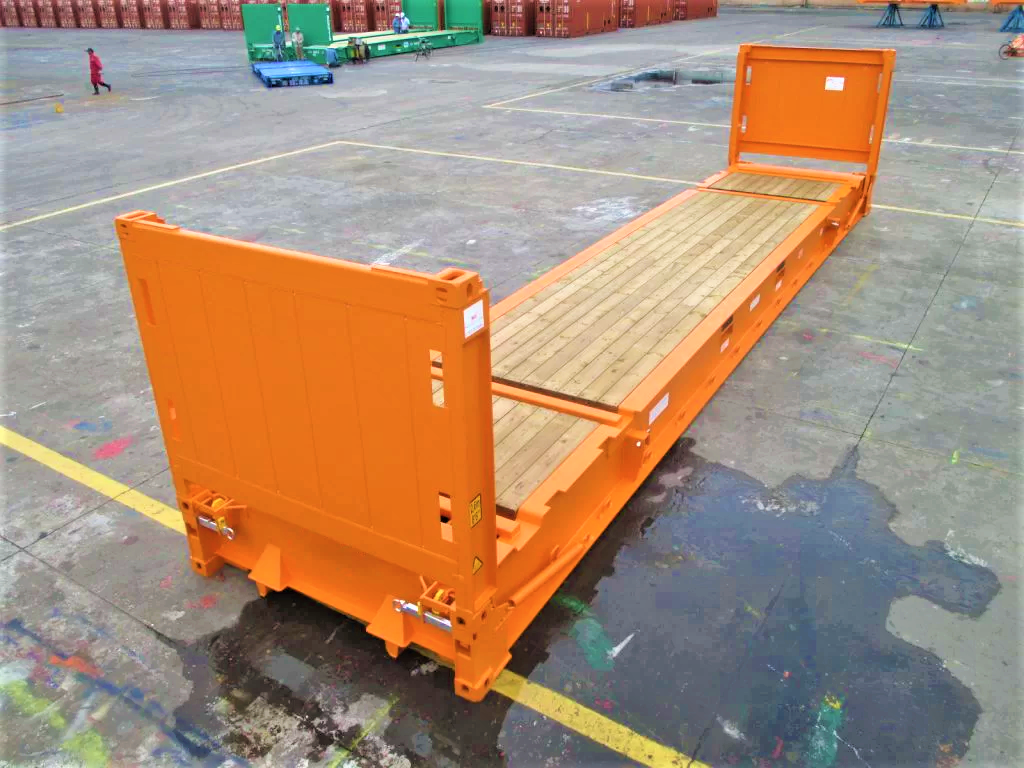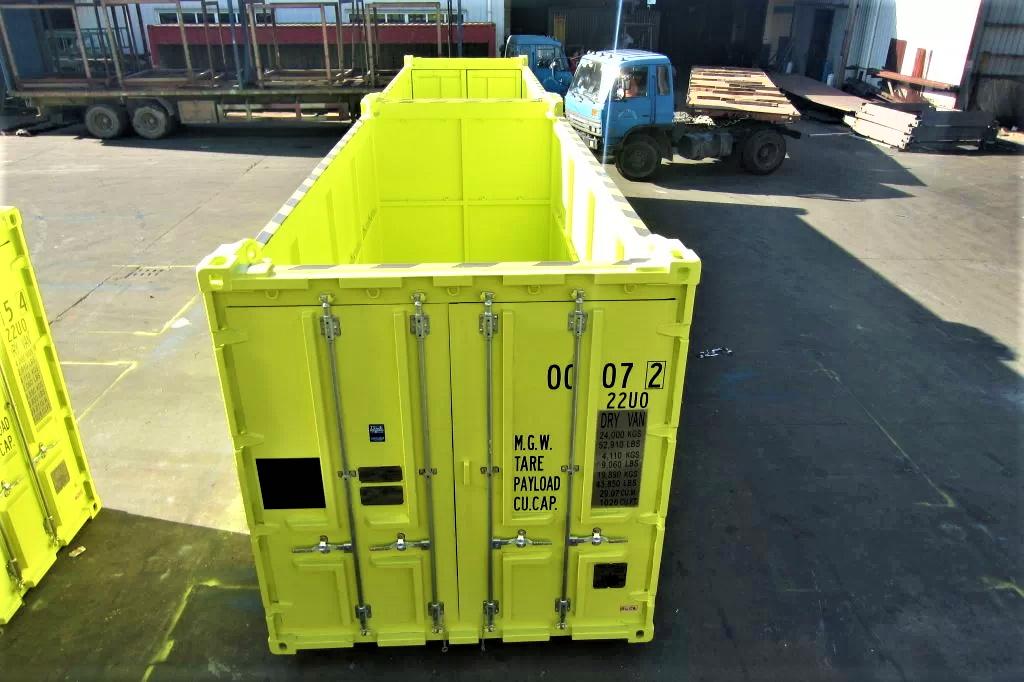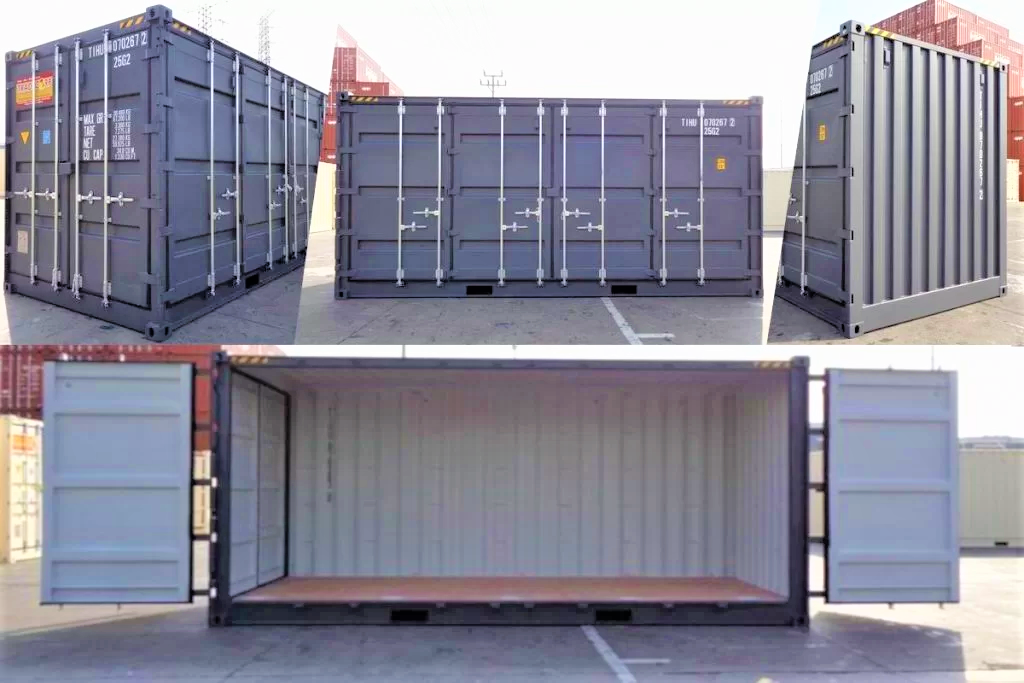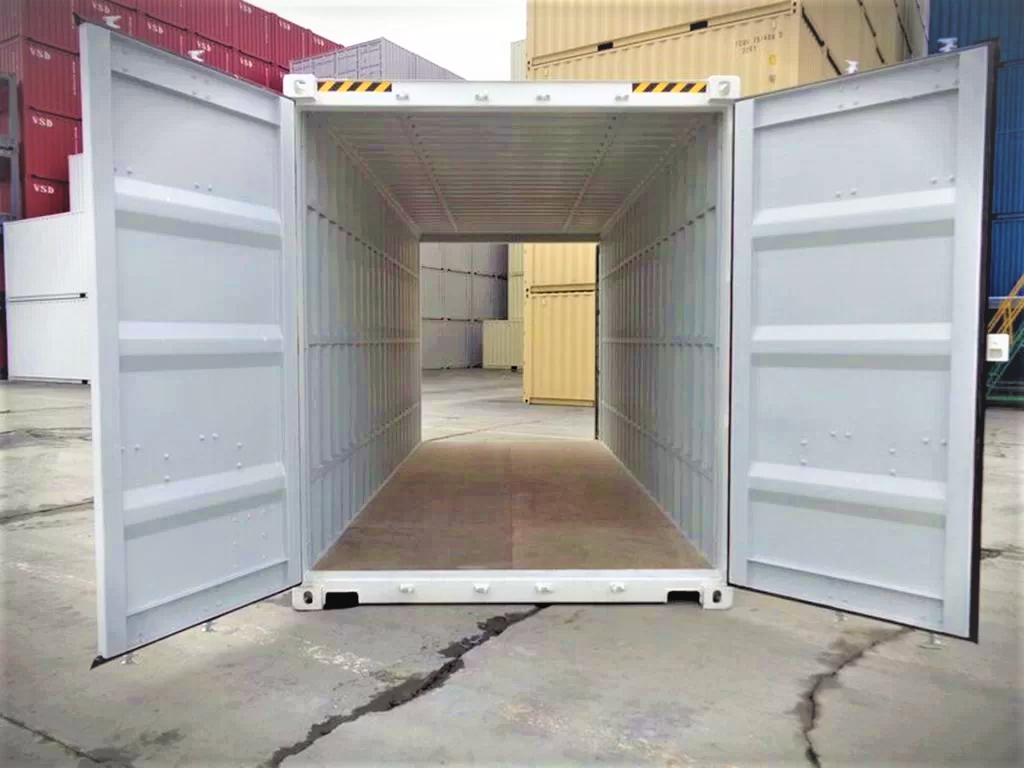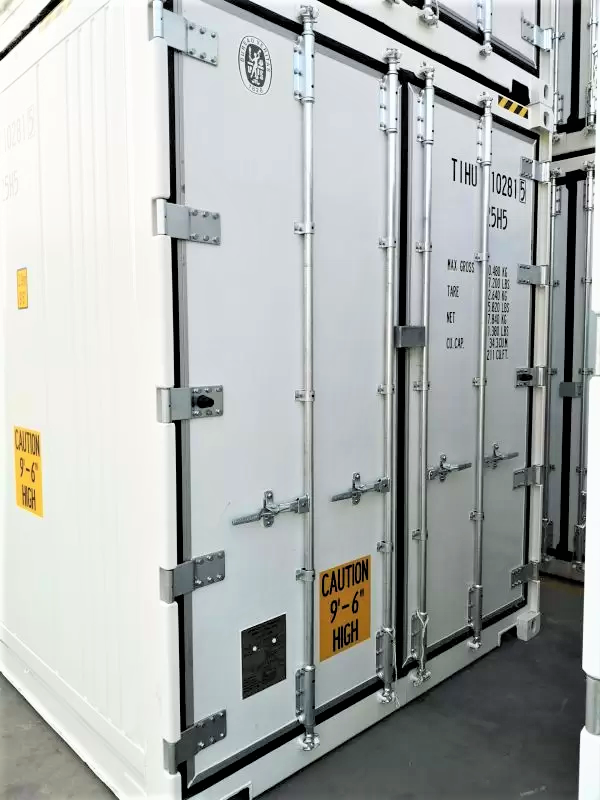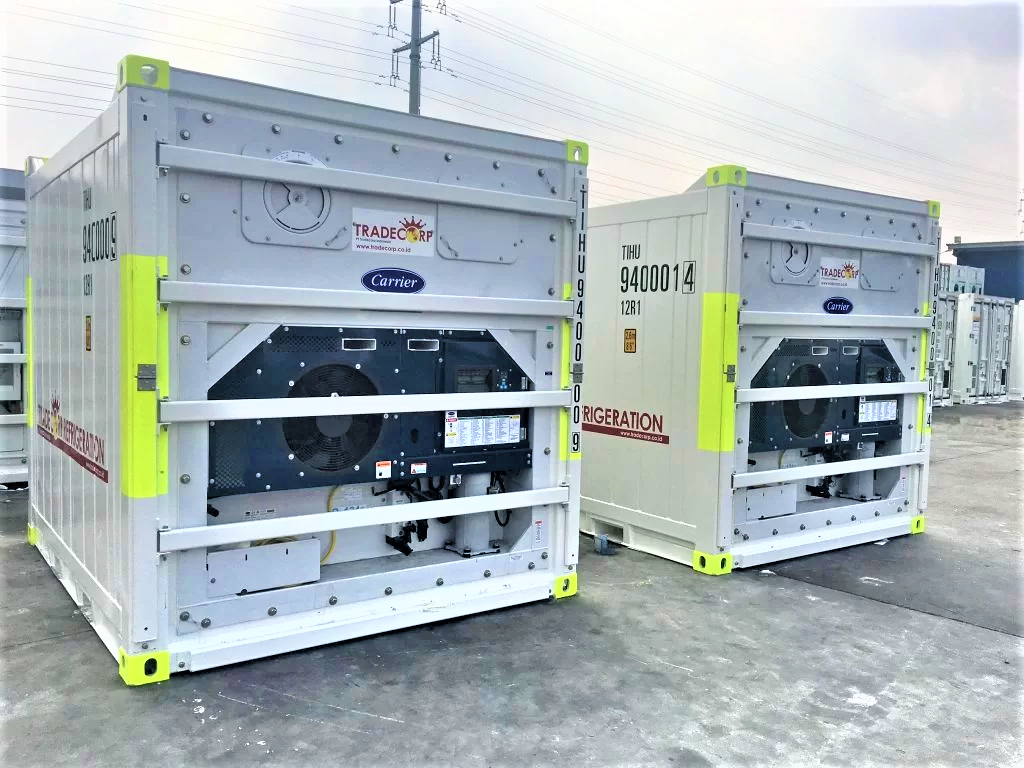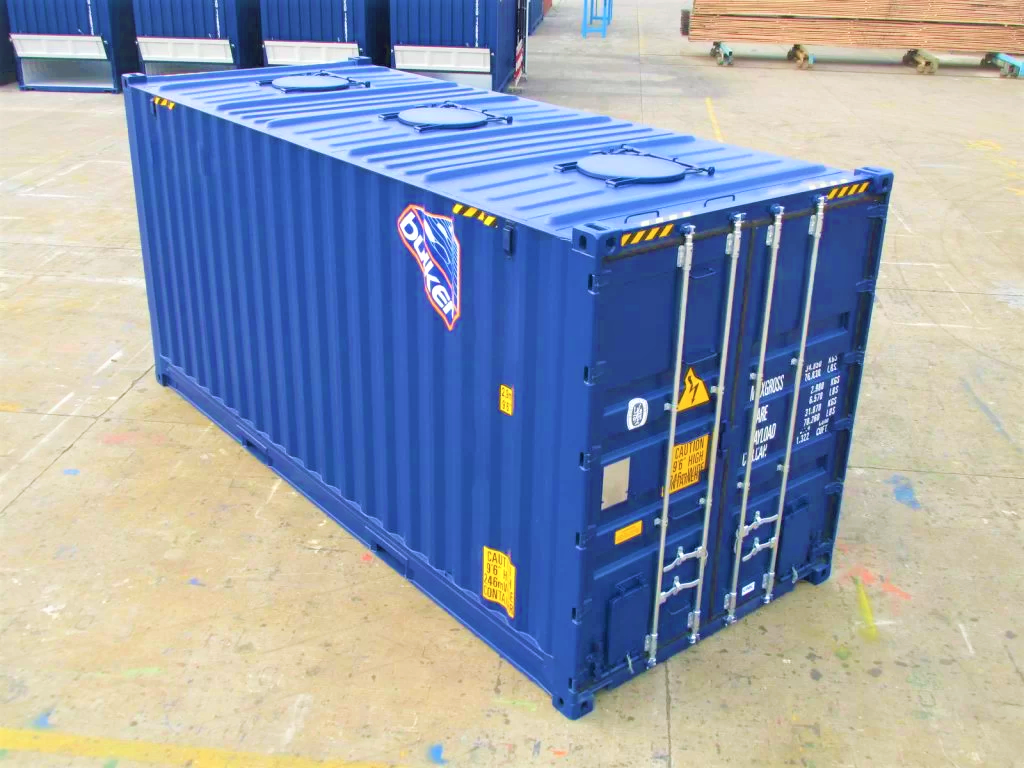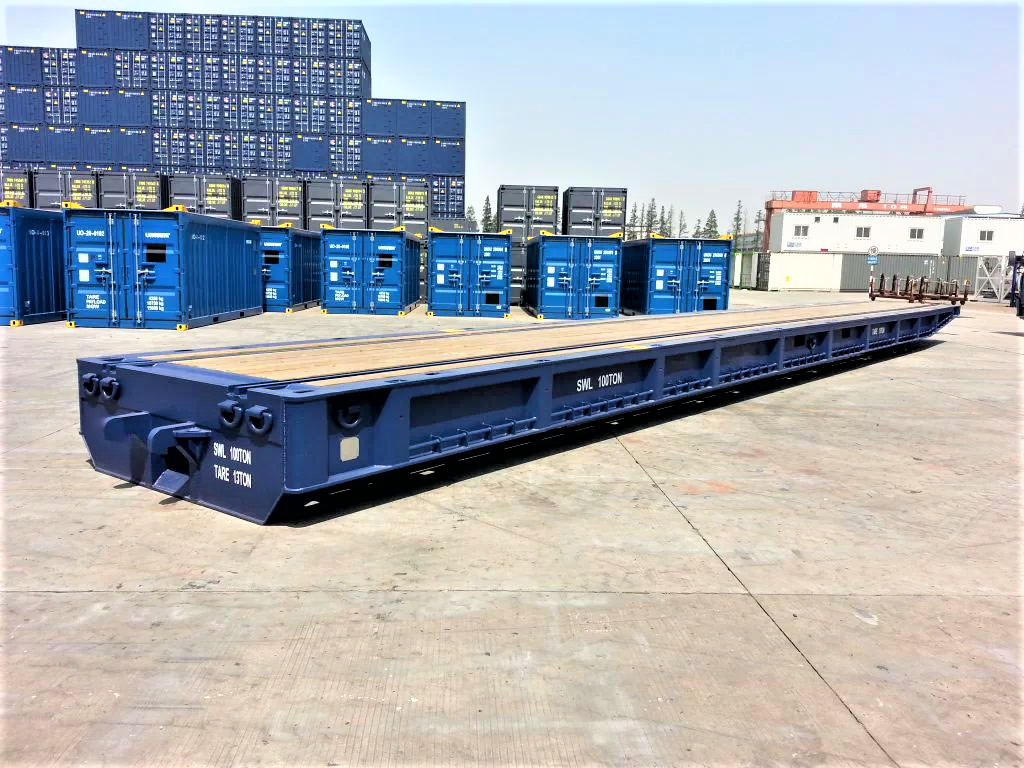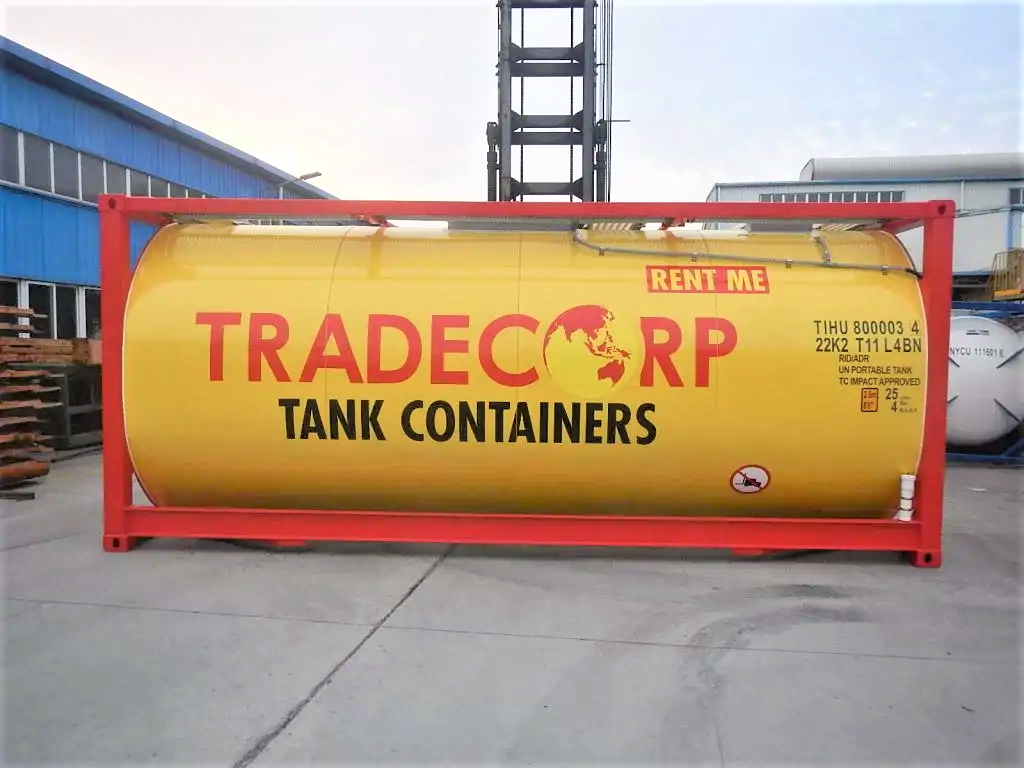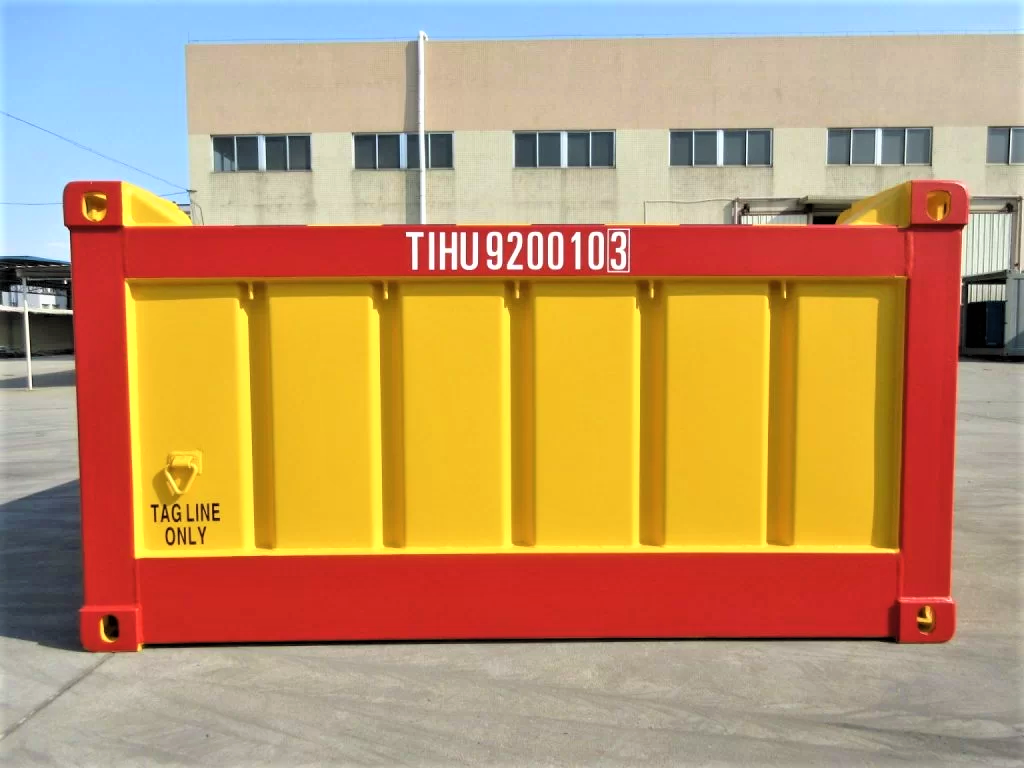Choosing the right types of shipping containers will do you a lot of good. The suitable type of container will save you on shipping costs, storing the right products appropriately, and optimizing your cargo transport efficiency. Dimensions, structures, materials, and other aspects of container units can vary depending on the goods being transported or the special services required. Carefully reviewing them will help you pick the most suitable kind of shipping your products, here are the most common types of shipping containers:
Types of Storage Container
Dry Storage Containers: These are the most common types of shipping containers, which come in sizes of 6’, 8’, 10’ 20’, and 40’ (high cube). They are used for shipping dry goods like clothing, electronics, groceries that don’t contain liquid, and more.
Flat Rack Containers: Used for transporting large or oversized items. They normally have collapsible or non-collapsible side walls, functioning to make them easier to load into the container. Typical items that are transported using flat racks are heavy industry components, large machinery or piping.
Open-Top Containers: These are used to transport over-height products and have a removable top. The open top design enables easy loading and unloading of oversized cargo such as timber and scrap metal.
Open-Side Storage Containers: Also known as side-door containers, which open up from the sides instead of the ends. The side doors make it convenient to load typical heavy large items, such as cars, machinery, kitchen equipment, and more.
Double Door Containers: These containers are provided with doors on both ends of the container. These containers are perfect for loading large or heavy machinery that needs to be loaded or unloaded from either end. Pallets of bricks, long vehicles, and construction equipment are a few of the items that can be loaded onto double door containers.
Insulated/Thermal Containers: These storage containers have a controlled temperature system that enables them to keep things warmer by maintaining a higher temperature. Insulated or thermal containers are ideal for carrying temperature sensitive products such as foods, pharmaceuticals, and chemicals.
Reefer Containers: These preserve perishable goods over long distances, like fruits, seafood, and medicines. Refrigerated containers have a built-in refrigeration system that could maintain low temperatures and are typically closely monitored during the shipment.
Bulker Containers: Transporting bulk goods like grains and other loose bulk commodities becomes efficient with bulk containers. Tradecorp’s bulk containers have few circular roofs to allow loading loose bulks from atop.
Roll Trainer Containers: Moving containers can be transported on-site using roll trainer containers. Both 62 feet and 80 feet of these units are available. These trailers are ideal for quickly moving several containers over short distances.
Tank Containers: Transporting liquid materials are normally carried using tank containers. They are typically built from sturdy steel and anti-corrosive materials to protect the liquid contained from being spoiled or contaminated. Food grade liquids, non-hazardous, and hazardous liquids are the majority types of materials transported by tank containers.
Offshore DNV Containers: A DNV shipping container is a certified container made for the oil and gas industry. They are fully compliant with DNV 2.7-1 and EN 12071-1 and undergo thorough certification procedures to ensure their safety and resistance.
Factors to Think About When Choosing the Right Type of Storage Containers:
Container’s size: Storage containers come in different sizes that suit different varieties of products. The most popular shipping container sizes are 20′ and 40′. Some containers also come in high cube sizes, which will optimize your cargo transport too. Make sure that you pick the right size according to your needs so that they will be perfectly functional in the long run for your business.
Container’s load: Which type of cargo that you would mostly deliver? Some types of cargo are challenging to load and unload while others are extremely heavy. It will be necessary to use reefer containers for special loads, such as perishable goods. Tanks must be used for liquids such as oil and petroleum products. For any kind of unique cargo you might have, there are also containers made to order.
Container’s condition: There might be some circumstances that make you consider getting used containers instead of new ones. In that case, considering the age and conditions are important too. Used containers are good to use too when they are in pristine condition without having to cost you much.
Lastly, choosing the right container type will also help you most in cutting the cost for regular shippers. There are additional costs associated with the various container sizes. For instance, it costs more to drive a 40-foot container than a 20-foot one. Besides, the size of the shipping container also determines the cost. Choosing the right container type will do you a lot of good. If you’re still unsure of how or which to pick the right container for your business, don’t hesitate to consult with us. Tradecorp has a variety of types and sizes of shipping containers, from standard ones to tanks, and specialized ones. We will have them ready for you also at a reasonable price. Fill out a quote on our page and we will respond to your inquiry promptly.

